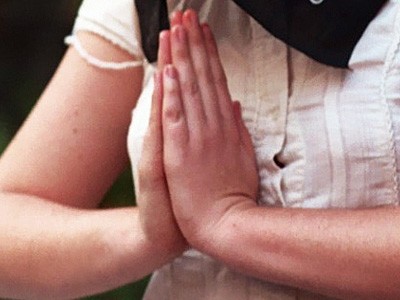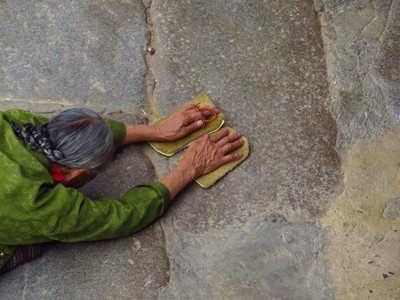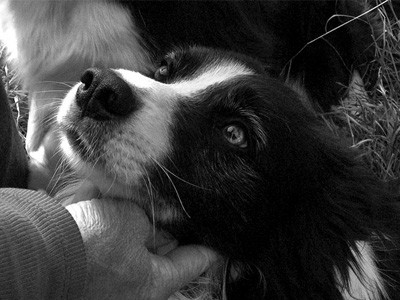A new friendship
Meeting a thief with kindness and compassion

I shared the most remarkable experience yesterday, and thought right away that I should write about it for the sangha. Some weeks ago, my clothes and other things were stolen from my car. That was hard on me because I’m still in school and have little money to replace them.
Caught in the act
Yesterday, my upstairs neighbor, a lifetime friend of mine, went with me to the store, because Viet and I sometimes cook together. We made a trip from my car to our apartments with groceries, and I took a few minutes to put them away before returning to my car for the rest.
… And there in my car was the man who had stolen my things, and things from Viet’s car as well. I rounded the corner into our driveway, and stood staring just a few feet away from this middle-aged man in stinking, reeking clothes, who was sitting in the front seat of my car and digging through its almost-worthless contents. He looked up with HUGE, wide eyes, and stopped cold. He was in shock. He was BUSTED.
Remarkably, I didn’t feel fear, or anger—things I would have expected to feel. If he’d moved suddenly to run, maybe the adrenaline would have gone off in my body, but we stared at each other, and I moved directly to him with my hands out in a “Why?” gesture. I wasn’t thinking; just reacting, in the way that came naturally to me.
Empathy for a thief
He quickly started to apologize, saying that he has nothing and feels badly and knows that stealing is wrong, and I said it was okay, that I understood. I felt his sincerity. He was drunk, and even had a beer still in his hand, but he was sincere in his remorse, and humility. After those mumbled apologies and “okays,” I asked with a cracking voice, “Do you still have my clothes?” I wanted to say, “I need those clothes—I am a student, and my job has almost failed, and I am interviewing for new jobs, and have no money for clothes,” but I couldn’t say all that; and I was teary-eyed, and reaching out for HIS kindness, as I offered him my own.
He tearfully asked if I could forgive him, and I said that I did, that I understood. And I DID understand. He said he would bring my clothes back and leave them in a bag outside in the morning. My clothes didn’t come back, of course, and I didn’t expect them to, but I knew that in that moment last night, when he made that promise, the promise was genuine. He meant to return my clothes. He was drunk, and maybe he forgot, or changed his mind today, or just didn’t want to bother, or maybe had already discarded these clothes that didn’t fit, but at least last night he felt remorse, and he felt something more than that: forgiven. Connected. It was a moment of warm humanity.
Releasing vengeance
Before last night, I had schemed to catch the awful man who broke into our cars and stole our things. I’d relished the thought of turning him in to the police, and prosecuting him. Viet was moved by my compassion, but still wished I’d turned the man in. What would the consequence have been, had I done that? Louis would have gone to jail, maybe for the night—he told me his name. I’m sure he’s been there before, and they’d know him by name at the station. He’d be on the street again in a day or a week or a year, or whenever, and go back to breaking into cars, and he’d understand that the consequence of doing that is that the police pick you up and feed you and give you a place to stay for a while. I would be his enemy. Men with cars are to be robbed, and that is how it is. You get away with it most of the time, and when you don’t, that’s not so bad. We’d not have gotten our stuff back, if we’d prosecuted. If Louis has any of it, it’s in a shopping cart somewhere, under a bridge or an overpass. What would we have gotten, by turning him in? Pride. Revenge. A new enemy. … That’s about it.
A new friend?
What did I get by reaching out to him, asking him for HIS help, and giving him a few dollars for some food? Well, I got a friend—a drunken, thieving, stinking, homeless friend, sure, but a friend nonetheless. I might have gotten my clothes back. <shrug> I’ve probably gotten protection for my car—I don’t think he’ll target me again.
But that’s all “me” stuff—what did “I” get. Someone else got something, too. Louis got a moment of compassion. He got a moment of his own remorse, which is a liberating feeling. Maybe he got a sense that by stealing, he hurts other people. It probably won’t stop him from stealing, but maybe he’ll be more mindful of the consequences of what he does.
A meaningful memory
A few weeks later … Well, Louis appears to be on the prowl still, which isn’t any sort of surprise, and of course he didn’t bring my clothes back, but at least he’s not targeting my car or my neighbors’. That’s not objectively good news in itself—the crime has just moved a few blocks away—but it does mean that the guy at least remembers our good moment, and has some measure of respect. Or fear, perhaps; I’m hopeful for the former, though.
I’d give him food, if he’ll accept it. I’d really like to get him to visit a shelter that might help him more meaningfully, but I think he’s probably among those who would refuse such assistance. It’s difficult to know how to be compassionate and helpful for someone like Louis. We did, though, have a sincerely meaningful moment, and I think that instance was probably as helpful and compassionate as any he ever has.


